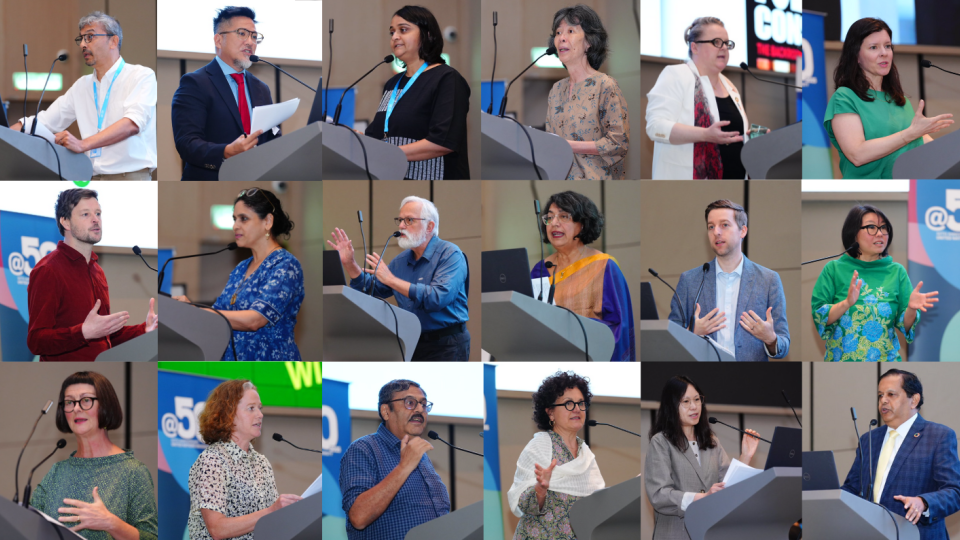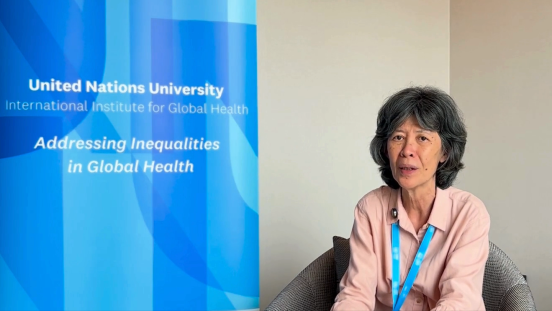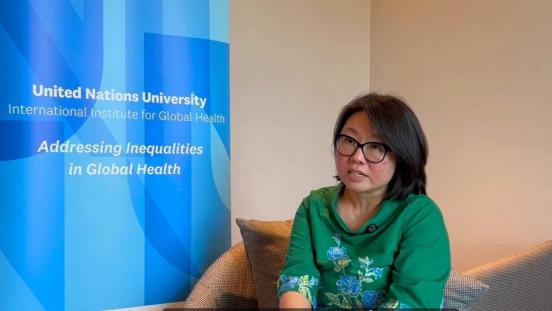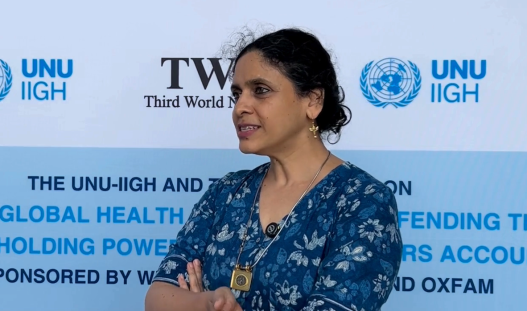As private influence in public policy deepens and profit extraction by healthcare corporations exceeds new thresholds, more than 200 health professionals, researchers, and civil society representatives from across thirty countries convened in Kuala Lumpur for a pivotal three-day symposium to examine the growing influence of powerful private actors (PPAs) in global health governance.
Co-organised by UNU-IIGH and Third World Network, with support from WHO, Oxfam, and the Collective for the Political Determinants of Health, the symposium platformed a critical space for multi-disciplinary dialogue on the political economy of global health inequalities, the mounting structural threats posed by unchecked corporate power, and the potential strategies for rebalancing this power towards public interest.
The symposium opened with a full day of public sessions, followed by two days of closed-door discussions, unfolding against the backdrop of a rapidly changing global order, marked by eroding public institutions, the deepening financialisation of the health sector, and waning multilateralism. While acknowledging the role of markets and private actors in society, participants voiced urgent concerns about the incursion of private equity, hedge funds, investment banks, and private asset managers into the health and broader development sector, spotlighting cost-cutting, workforce precarity, and reduced service quality amongst the many factors shaping increasingly poor health outcomes.
Drawing on the rapidly expanding field of research into the commercial determinants of health, participants dissected the systemic risks embedded in corporate practices, such as the aggressive marketing and supply of unhealthy commodities, the externalisation of environmental and social costs from commercial activities, and the ability of large oligopolistic trans-national corporations (TNCs) to avoid their tax obligations to society while gouging excessive profits at the expense of equitable access to essential products and services. Concurrently, PPAs have deepened their influence over policymaking and governance systems, leveraging public-private partnerships and multi-stakeholder forums to shape agendas and priorities. As public budgets contract and debt burdens escalate, particularly in L&MICs, private financial institutions and foundations have become further involved in the financing and delivery of public goods and services. This shift raises critical questions on the balance of power between PPAs, governments, and public-interest institutions, as well as concerns about the effectiveness of mechanisms and systems to hold them accountable.

Beyond diagnosis, the symposium also served as a platform for charting alternative ways forward. From the political economy of food systems to the influence of private foundations on media narratives, from post-TRIPS intellectual property regimes to the dismantling of the humanitarian sector, participants mapped opportunities to shift the balance of power and re-orient global health developments towards public interest. Discussions ultimately converged on underscoring the key role that progressive tax systems and redistributive fiscal policies must play in generating public revenue, implementing defensive measures against base erosion and profit shifting (BEPS), and curbing corporate excess. These were framed not merely as technical fixes, but as structural prerequisites for building more equitable, accountable, and resilient global health systems. Ultimately, the symposium reaffirmed that confronting the political and economic power of PPAs is not a peripheral concern in the pursuit of health equity but is central to it.
The full symposium programme, with details of the discussions and topics covered, can be accessed here.
To encourage continued engagement, a curated collection of supporting content, including op-eds, commentaries and background papers, is available below.
Plenary sessions from the first day of the symposium, which hosted more than 200 attendees, are available for viewing on UNU-IIGH’s YouTube channel via this link.
Interview Series

Multimedia
Voices from the Symposium: Chee Yoke Ling

Multimedia
Voices from the Symposium: Anna Marriott

Multimedia
Voices from the Symposium: Celine Tan

Multimedia
Voices from the Symposium: Anita Gurumurthy
Background Readings
Article
Background Papers for the Global Health Symposium
Events and News
Press Release
International Symposium Addresses Growing Influence of Private Actors in Global Health
Symposium






